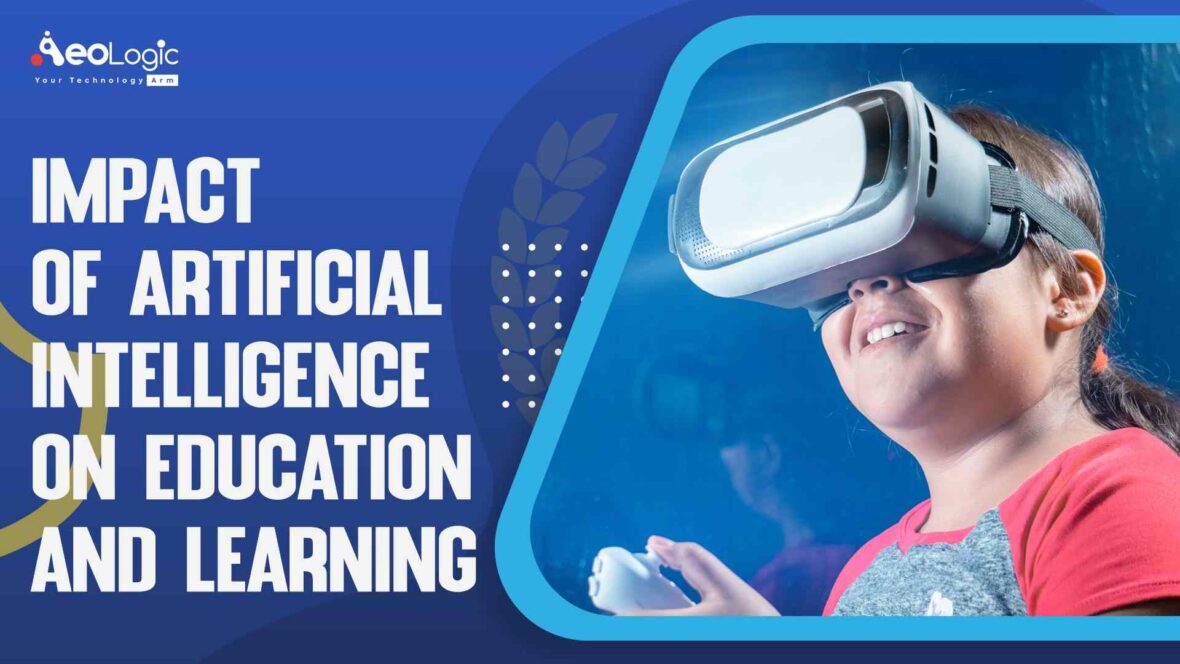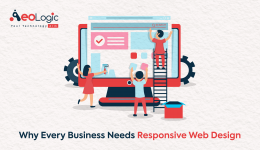The impact of Artificial Intelligence on Education and learning has become a topic of conversation. The reason is that learning is so necessary and due to the current provision. AI in the education industry has the capability to be a game-changer for every learner. Gone are the days when one has to run to the library to get a photocopy of a few pages of a book for a school assignment. Generation Z and Generation Alpha grow up with technology at their fingertips.
The primary source of entertainment, education, and information is the internet now. Since the beginning of the Covid-19 pandemic, hours spent learning in classrooms from chalkboards have also decreased significantly. It also comes after the effect of lockdowns and social restrictions. Several schools across the country are already using AI. You should know the impact of AI on education and learning.
Impact of AI on Education and Learning
Following are the applications of the impact of AI on education and learning:
1. Emotional Well-Being
A child’s emotional status influences motivation, engagement, and concentration in learning. Virtual set-ups can be just as efficient as physical learning environments when emotion recognition technology is used. As gamification is acknowledged, learning and teaching can be adjusted to be fun. Moreover, AI can detect where learners are struggling and help them to improve and eventually excel.
2. Identifying and filling the gaps
AI can spot the gaps in educators’ educational material and presentations. Hence, it can recommend adjustments when required.
Also read: Technology Trends Impacting the Future of Education
3. Chatbots
Chatbots are one example of AI. It is the future of all technical cores. Chatbots are being implemented increasingly in classrooms where students use laptops or iPads to chat with bots. It is designed to help them absorb specific subjects like reading comprehension or math. Chatbot has the potential to do more than just teach students new concepts. They can also help in the analysis if required. It reduces the burden of tasks assigned to the teachers. It can also swap email communications between parents and teachers as well as parent’s meetings.
4. Learning Management System (LMS)
In this era of technology, it becomes mandatory to stay up to the minute with technological advancements in education. AI incorporated with LMS offers a centralized, insightful system for handling all of the online functions of a school. These can be implemented for several purposes. Although they are commonly used to perform the following:
- Coursework assignment
- Communication with parents and students
- Tracking the progress of the students
- Generating reports on student performance
5. Robotics
The use of AI with Robotics in education has augmented over the past few years. It can be implemented in the system for both teachers and students. It can improve student safety and engagement. The development of AI with robotics in education is certain. Robots can be an exceptional resource for learning for both educators and learners. Both can explore the topic in-depth with fun engagement. Robots can offer teachers a way to have more face-to-face teaching time with students who need extra help. It can enable them to experiment with new methods of teaching. For students, it provides the space to learn at their own pace without being judged by their peers. They get the liberty to make mistakes and learn from them.
6. Virtual Reality (VR)
AI with VR is already in use in the education industry. It teaches everything from history to help students with mathematics. VR is a 3-D computer-generated environment that can be explored and interacted with. VR can help students to stay connected with each other. Students can use the same VR program while sitting in different classrooms and can communicate safely despite the distance. Students and teachers can observe things that they might have never seen or learned about it in real life. The technology provides the opportunity for teachers to explore more engaging methods of teaching their students. An increase in engagement and in-depth understanding will be beneficial for both teachers and students.
Also read: IoT Technologies Can Help Better Maintain Campus Buildings
Conclusion
To sum up, there has been a significant impact of AI on education and learning. AI has proved to be advantageous for parents who are always worried about their children’s social life. AI technology has enabled them to supervise their kid’s interactions online more carefully than ever before. Schools use software that analyses data points like how the students are comprehending the materials. It then groups students according to what they need. AI also can present full-time 24-hour availability to lessons and teachers, anywhere. Based on AI algorithms, it can provide students personalized feedback on quizzes, coursework, etc. With the incorporation of AI in the education industry, learners can create a bright future for themselves.
If you are someone who is looking for solutions to their business queries, kindly drop a message to Aeologic Technologies.
FAQs
How can AI be implemented in education?
AI with several futuristic technologies offers the school to provide personalized learning materials. It provides in-depth insight into analytics-based performance for every student. Artificial Intelligence can be used with Virtual Reality (VR), Chatbots, Robots, Learning Management Systems (LMS), etc.
In the coming years, what AI can do to the education industry?
In the future, AI can be foreseen as an educator or assistant to the teacher. It can simplify the mundane tasks of teachers like communicating with parents, analyzing the reports, sending out emails, etc. it can also take the burden off a teacher. Hence the teacher can utilize that time to teach students who require additional support.






